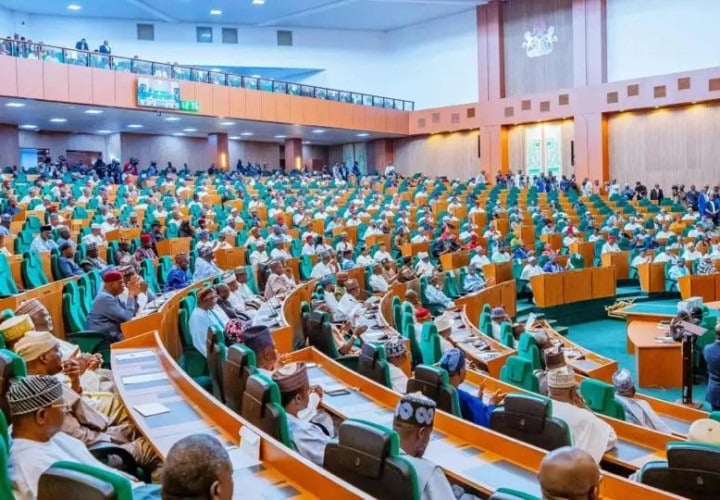By Adelabu Jumoke
The House of Representatives has stepped in to address the recent dispute between the Petroleum and Natural Gas Senior Staff Association of Nigeria (PENGASSAN) and the Dangote Refinery — a key national asset whose operations are vital to Nigeria’s energy security and economic stability.
The intervention followed a motion of urgent public importance co-sponsored by Hon. Alhassan Doguwa (Kano) and Hon. Abdussamad Dasuki (Sokoto) during Tuesday’s plenary. The lawmakers called attention to the need to protect private investments like the Dangote Refinery from what they termed “adversarial unionism,” emphasizing the refinery’s strategic importance as the largest private petroleum processing facility in Africa.
The industrial action by PENGASSAN, which began on September 29, 2025, significantly disrupted the refinery’s operations, causing a ripple effect that hampered crude oil production and resulted in a nationwide fuel shortage. Reports indicated a daily production loss of approximately 200,000 barrels over three days, escalating hardship for millions of Nigerians.
Speaking on the floor, Hon. Doguwa described the Dangote Refinery as a transformative investment with the capacity to reduce Nigeria’s dependency on fuel imports, conserve foreign exchange, and generate thousands of jobs. He highlighted that the refinery, located in a Free Trade Zone, is legally under the jurisdiction of the Nigeria Export Processing Zones Authority (NEPZA), not conventional labour laws.
“The Dangote Refinery is not just a private enterprise — it is a national economic lifeline. Its protection from unlawful disruption is critical for Nigeria’s development,” Doguwa stated, citing Section 18(5) of the NEPZA Act, which exempts Free Zone employment matters from general labour legislation.

Lawmakers expressed concern that disregard for these legal frameworks by labour unions could create an unfriendly business climate, discourage future investors, and undermine Nigeria’s economic aspirations.
Hon. Ahmad Jaha, representing Chibok/Damboa/Gwoza, urged caution, suggesting that any investigations or confrontations be handled delicately to avoid escalating tensions.
In adopting the motion, the House mandated its leadership to immediately intervene and mediate between the two parties to restore industrial harmony. It also directed the Federal Ministries of Labour and Employment, Industry, Trade and Investment, and Justice to work collaboratively on a national policy framework aimed at shielding strategic private investments from disruptive labour actions.
Additionally, the Ministry of Justice and NEPZA were tasked with ensuring strict adherence to the provisions of the Export Processing Zones Act in managing employment and regulatory matters within designated Free Zones.
The House’s swift response underscores the growing recognition of the Dangote Refinery as a cornerstone of Nigeria’s energy independence and economic diversification agenda.








